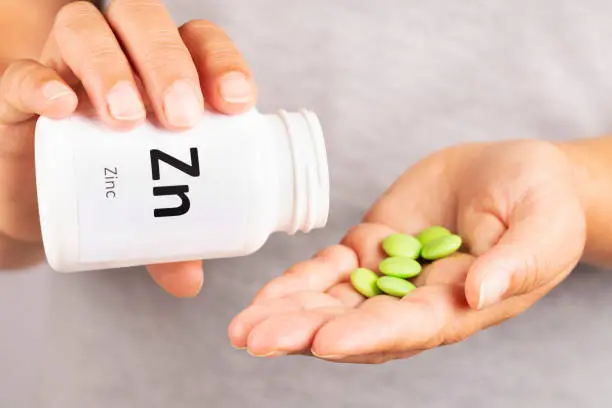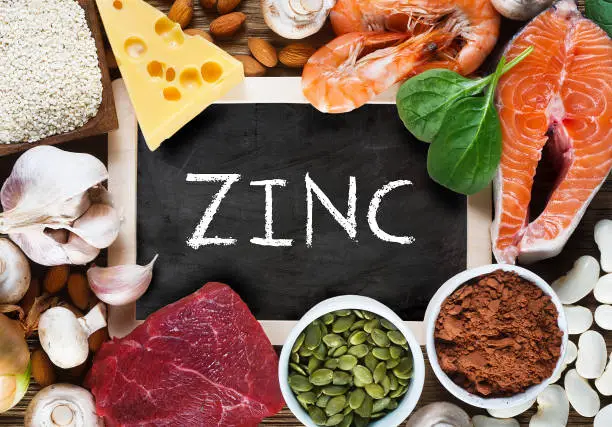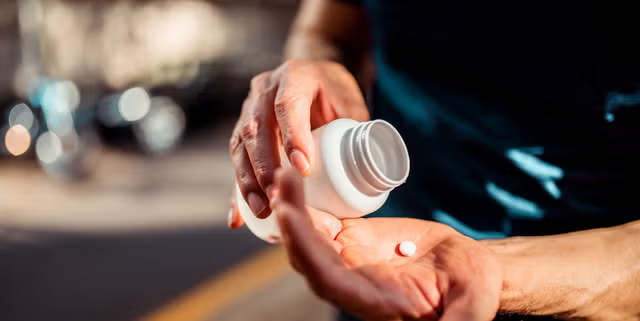Discover the power of zinc how it strengthens immunity, heals wounds, boosts fertility, and fights acne. Learn the best food sources, supplements, and deficiency signs!
Zinc is an essential nutrient that plays a pivotal role in numerous physiological functions. From supporting immune health to facilitating wound healing, zinc’s importance cannot be denied. Despite being required in small amounts, its impact on overall well being is substantial.
Introduction: Why Zinc Matters for Your Health
Zinc is a vital nutrient involved in various bodily processes. It is crucial for enzyme function, protein synthesis, DNA formation, and cell division. Additionally, zinc supports immune function, wound healing, taste perception, and growth and development during pregnancy, infancy, and childhood.
Despite its importance, nearly 2 billion people worldwide are zinc-deficient, particularly in developing countries and among vegetarians/vegans. Even mild deficiencies can weaken immunity, slow healing, and impair cognitive function.
In this comprehensive guide, we’ll explore:
Top health benefits of zinc
Signs of deficiency & who’s at risk
Best food sources (animal & plant-based)
Optimal dosages & supplement types
Potential side effects & interactions

How Zinc Works in the Body
Zinc acts as a cofactor for over 300 enzymes, meaning it’s required for vital biochemical reactions, including:
Immune response (activates T-cells and reduces inflammation)
Protein synthesis (needed for muscle repair and growth)
Hormone production (testosterone, thyroid hormones)
Antioxidant defense (protects cells from oxidative damage)
Neurological function (supports memory and learning)
Because the body doesn’t store zinc, consistent dietary intake is necessary to maintain optimal levels.
Top Science-Backed Benefits of Zinc
Immune System Support
Zinc is integral to immune function. It aids in the development and activation of T-cells, which are essential for combating infections. Adequate zinc levels can reduce the duration and severity of common colds and other respiratory infections. Zinc Enhances white blood cell activity. May improve vaccine effectiveness
Wound Healing
Zinc plays a significant role in wound healing by supporting cell proliferation and inflammatory responses. Individuals with zinc deficiency often experience delayed wound healing.Zinc is critical for collagen synthesis.It is used in hospitals for burn and ulcer recovery
Promotes Skin & Hair Health
Zinc possesses anti-inflammatory properties that can alleviate skin conditions such as acne and eczema(reduces inflammation and bacteria).Topical and oral zinc treatments have been shown to reduce acne severity and promote clearer skin.Zinc Strengthens hair follicles to prevent hair loss.
Growth and Development
Zinc is essential for proper growth and development, especially during pregnancy, infancy, and adolescence. It supports cellular growth and division, making it vital for physical development.
Cognitive Function
Zinc contributes to cognitive health by supporting neurotransmitter like dopamine and serotonin function and brain signaling pathways. Deficiency in zinc has been linked to cognitive impairments and mood disorders such as depression, ADHD, and Alzheimer’s risk
Boosts Fertility & Reproductive Health
Zinc boosts fertility and plays a key role in reproductive health of both men and women. In men, it supports sperm production and testosterone synthesis, while in women, it plays a role in ovulation and fertility.
Protects Vision
Zinc slows age-related macular degeneration (AMD)and it is Essential for night vision.
Antioxidant Properties
Zinc acts as an antioxidant, combating oxidative stress by neutralizing free radicals. This function helps in reducing the risk of chronic diseases such as heart disease and certain cancers.
Balances Blood Sugar
It improves insulin sensitivity and may lower diabetes risk.
Best Food Sources of Zinc
Incorporating zinc rich foods into your diet is the best way to maintain adequate levels. Excellent sources include:

Animal-Based (Highly Absorbable)
Oysters: Highest natural source of zinc approximate (74mg per 100g)
Red Meat: Beef and lamb are high in zinc content especially grass-fed liver.
Poultry: Chicken and turkey provide moderate amounts.
Eggs & Dairy :Yogurt, cheese, and milk contribute to zinc intake.
Seafood: Crab and lobster are good sources.
Plant-Based (Less Absorbable Due to Phytates)
Pumpkin Seeds: 1 oz contain 2.2mg zinc.
Legumes: Chickpeas, lentils, and beans contain zinc, though in less bioavailable forms.Lentils & Chickpeas should Soak to reduce phytates
Nuts and Seeds: Pumpkin seeds, cashews, and almonds offer zinc.Cashews & Almond are best when sprouted.
Whole Grains: Wheat, quinoa, and oats contain zinc.Quinoa & Oats pair with vitamin C for absorption
Recommended Daily Intake
The Recommended Dietary Allowance (RDA) for zinc depends upon age, sex, and life stage:
Adult Men: 11 mg/day
Adult Women: 8 mg/day
Pregnant Women: 11–12 mg/day
Lactating Women: 12–13 mg/day
It’s important to note that excessive zinc intake can lead to adverse effects. The Tolerable Upper Intake Level (UL) for adults is 40 mg/day. Exceeding this limit can cause nausea, vomiting, loss of appetite, abdominal cramps, diarrhea, and headaches.
Therapeutic doses (for deficiency or illness) may range from 15–50 mg/day under supervision.
Zinc Deficiency Causes
While zinc deficiency is uncommon in developed countries, certain populations are at risk, including:
Vegetarians and Vegans: Plant-based diets may lack bioavailable zinc.
Pregnant and Lactating Women: Increased requirements during these stages.
Individuals with Gastrointestinal Diseases: Conditions like Crohn’s disease can impair absorption.
Alcoholics: Alcohol consumption can decrease zinc absorption and increase excretion.
Elderly Adults (reduced absorption)
Zinc Deficiency vs. Toxicity symptoms: Finding the Balance
Symptoms of zinc deficiency include:
Frequent colds & infections
Slow wound healing
Hair loss & brittle nails
Loss of taste/smell
Brain fog & poor concentration
Low libido & hormonal issues
Impaired immune function
Growth retardation in children
Chronic fatigue
Toxicity Symptoms (Rare but Possible)
Nausea & vomiting
Copper deficiency (zinc blocks absorption)
Reduced HDL (“good” cholesterol)
Never exceed 40 mg/day without medical guidance.
Zinc Interactions & Absorption Tips
Enhances Absorption
Take with protein rich meals to enhance its absorption
Combine with vitamin C (boosts uptake)
Reduces Absorption
High calcium/iron supplements reduces zinc absorption (space out by 2 hours)
Phytates in grains/legumes (soak/sprout before eating)
Zinc Supplementation: When and How
Supplementation may be necessary for individuals at risk of deficiency or those with increased requirements. The various available forms of Zinc supplements are , zinc gluconate, zinc sulfate, and zinc acetate. It’s advisable to take supplements with food so that gastrointestinal discomfort linked with supplements can be minimized.
However, excessive supplementation can lead to toxicity. Long-term high-dose zinc intake can interfere with the absorption of other essential minerals like copper, leading to deficiencies. Zinc Supplements: Which Form Is Best?

Zinc Picolinate: High in absorption, it is for General use and best for immunity.
Zinc Gluconate: Absorption is moderate, mostly used in Colds & lozenges.
Zinc Citrate: Good in absorption, has Digestive tolerance.
Zinc Orotate: Absorption is high ,used in Cellular repair
Zinc Sulfate: Low in absorption mostly used Topically (acne, wounds)
Final Verdict
Zinc is a must-have mineral for immunity, healing, and overall vitality. To ensure you’re getting enough:
Eat zinc-rich foods daily (oysters, meat, pumpkin seeds).
Get tested if experiencing symptoms like frequent illness or fatigue.
By maintaining optimal zinc levels, you can boost resilience, energy, and long-term health.
Consider a supplement if you’re at risk of deficiency.While supplementation can be beneficial in certain cases, it should be approached with caution to avoid potential adverse effects.Before starting any supplementation you should Consult with a healthcare professional.
FAQs About Zinc
Q: Can zinc prevent COVID-19 or other viruses?
A: While it supports immune function, it’s not a cure. Some studies suggest it may reduce severity.
Q: Does zinc help with acne?
A: Yes! Both oral and topical zinc reduce inflammation and bacteria.
Q: Should athletes take zinc?
A: Absolutely,it aids muscle recovery, testosterone, and endurance.
Q: Is zinc good for hair loss?
A: Yes, especially if deficiency related. Pair with biotin and iron for best results.